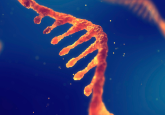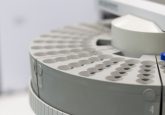Kidney cancer urinary protein biomarkers identified

A research team at Washington University School of Medicine in St. Louis (MO, USA) has developed a ‘urine test’ for kidney cancer, presenting a non-invasive method of screening for the disease. The study, published earlier this month in JAMA Oncology, involved the measurement of protein biomarkers in urine samples.
Early detection of kidney cancer presents a significant challenge for the successful diagnosis and treatment of the disease. If the cancer is caught and treated before it spreads, 80% of patients survive; however, if not detected until after this, more than 80% of patients die within 5 years. It is, therefore, of great importance to researchers to identify new methods of detecting the disease at an early stage.
The Washington University team included researchers from the Siteman Cancer Center and the Mallinckrodt Institute of Radiology and the Division of Urologic Surgery. They analyzed urine samples from 720 patients at Barnes–Jewish Hospital (MO, USA) who, for reasons unrelated to a suspicion of kidney cancer, were about to undergo abdominal CT scans. Urine samples from 80 healthy volunteers and 19 patients already diagnosed with kidney cancer were also analyzed.
The researchers measured the levels of two proteins – AQP 1 and PLIN2 – in the urine samples. They found that none of the healthy individuals displayed elevated levels of either protein, but detected increased concentrations of both the proteins in patients with kidney cancer. Of the 720 patients who had abdominal CT scans, three patients displayed elevated levels of both proteins, and two of those patients were subsequently diagnosed with kidney cancer. The third patient died from unrelated causes before a diagnosis could be made.
Jeremiah J Morrissey, principcal investigator and professor of anesthesiology at Washington University in St. Louis, commented on the findings: “Each protein, or biomarker, individually pointed to patients who were likely to have kidney cancer, but the two together were more sensitive and specific than either by itself. When we put the two biomarkers together, we correctly identified the patients with kidney cancer and did not have any false positives.”
Patients with other types of non-cancerous kidney disease were not found to show increased levels of the two protein biomarkers. The team believe this means the biomarkers could also be used to rule out kidney cancer for some patients.
Currently, kidney cancer is often detected incidentally, when the patient has a CT or MRI scan for an unrelated reason. Morrissey discussed the possible potential of the urinary biomarkers to be used for a more proactive approach to the detection of kidney cancer: “By and large, patients don’t know they have kidney cancer until they get symptoms…And by then, it’s often too late for a cure…So we’re hoping to use the findings to quickly get a test developed that will identify patients at a time when their cancer can be more easily treated.”
Sources: Kidney cancer detected early with urine test; Morrissey JJ, Mellnick VM, Luo J et al. Evaluation of urine aquaporin 1 and perilipin 2 concentrations as biomarkers to screen for renal cell carcinoma. JAMA Oncol. doi:10.1001/jamaoncol.2015.0213 (2015) (Epub ahead of print).






